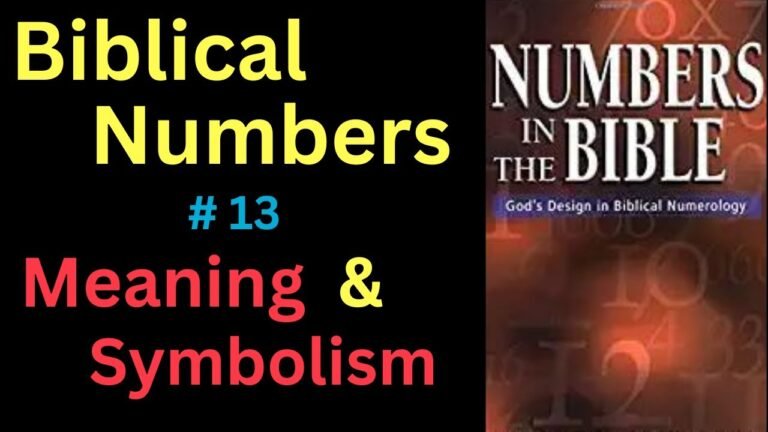Unveiling Melchizedek: The Biblical Enigma
In the vast tapestry of biblical narratives, few figures are as enigmatic as Melchizedek. Mentioned briefly in the Book of Genesis and later referenced in the Psalms and the New Testament, Melchizedek stands out as both a king and a priest, embodying the fusion of spiritual authority and royal power. His mysterious origins and profound significance have sparked intrigue and debate among theologians and scholars for centuries. Who was Melchizedek in the Bible, and why does his legacy continue to resonate in discussions of faith and identity? Exploring this question unveils layers of meaning that challenge our understanding of priesthood, kingship, and divine purpose.
What is the significance of Melchizedek and who is he?
Melchizedek is a significant figure in biblical history, often identified as the king of Salem, which is widely believed to be an ancient name for Jerusalem. His mention in key biblical texts, such as Genesis and the Psalms, highlights his importance as a priest and a ruler. The connection between Salem and Jerusalem is reinforced in Psalm 76:2, where Salem is described in a context closely tied to the holy city.
In the narrative of Genesis 14, Melchizedek encounters Abraham, offering him blessings and sharing bread and wine. This act not only establishes Melchizedek’s role as a priest of the Most High God but also signifies a pivotal moment in the relationship between Abraham and the divine. Melchizedek’s priesthood is unique, as it predates the Levitical priesthood, suggesting a direct link to a higher spiritual authority that transcends traditional religious structures.
The figure of Melchizedek is further explored in the New Testament, particularly in the Book of Hebrews, where he is presented as a prototype of Christ. This connection emphasizes themes of eternal priesthood and the idea of a new covenant, making Melchizedek a vital character in understanding the continuity of God’s plan throughout biblical history. His dual role as both king and priest illustrates the profound spiritual significance he holds within the Judeo-Christian tradition.
What is the relationship between Melchizedek and Jesus?
Melchizedek holds a significant place in Christian theology as a precursor to Jesus Christ, symbolizing a divine priesthood that transcends traditional Levitical lines. In the Epistle to the Hebrews, he is described as a figure of righteousness and peace, whose mysterious origins and role as king and priest foreshadow the ultimate priestly role that Jesus would fulfill. This connection emphasizes the unique and eternal nature of Jesus’ priesthood.
By declaring Jesus as “High priest forever in the order of Melchizedek,” the text highlights the transformative shift from the old covenant to the new. Jesus embodies the perfect mediator between God and humanity, establishing a direct relationship that was previously unattainable. Through this lens, Melchizedek not only serves as a historical reference but also as a theological bridge that deepens the understanding of Christ’s eternal priesthood and His redemptive mission.
What information does the Bible provide about Melchizedek?
Melchizedek is a fascinating figure in the Bible, known as both the king of Salem and a priest of God Most High. His encounter with Abraham highlights his significance, as he blessed Abraham after the latter’s victory over kings. This moment not only emphasizes Melchizedek’s spiritual authority but also establishes a profound connection between him and one of the Bible’s most revered patriarchs.
The meaning of Melchizedek’s name, which translates to “king of righteousness,” speaks volumes about his character and role in biblical history. Additionally, being referred to as the “king of Salem,” or “king of peace,” adds another layer to his identity, suggesting that his reign was marked by justice and harmony. These titles not only elevate his status but also foreshadow the spiritual significance he would later hold.
In the context of the New Testament, particularly in Hebrews, Melchizedek serves as a type of Christ, symbolizing an eternal priesthood that transcends the Levitical order. His dual role as king and priest illustrates a model of leadership that combines authority with spiritual service, making him a compelling figure in biblical theology. Through Melchizedek, we see a glimpse of the peace and righteousness that come from a life devoted to God.
Unlocking the Secrets of a Mysterious Figure
In the dim light of history, one enigmatic figure continues to captivate the imaginations of scholars and enthusiasts alike. With origins shrouded in ambiguity, this individual has left behind a legacy that intertwines with the fabric of culture and influence. From whispered legends to documented accounts, the journey to uncover their true identity unfolds like a riveting mystery, inviting us to delve deeper into the past.
As we piece together fragments of information, patterns emerge that hint at the profound impact this figure had on their contemporaries. Their actions reverberated through time, shaping ideologies and inspiring movements that resonate even today. Each clue, whether found in ancient texts or oral traditions, adds depth to our understanding, transforming a mere silhouette into a vibrant character of history whose motivations and aspirations beckon exploration.
Unraveling the secrets of this mysterious figure not only illuminates their life but also offers insights into the era they inhabited. By examining the societal, political, and cultural contexts, we gain a clearer picture of how their legacy continues to inspire and challenge us. The quest to understand their significance is not just about revealing the past; it’s an invitation to reflect on our own narratives and the figures who shape our world today.
Exploring the Legacy of Melchizedek
Melchizedek, a figure shrouded in mystery, embodies the intersection of spirituality and leadership, leaving an indelible mark on religious traditions. Revered as both a king and priest in biblical texts, his dual role symbolizes the harmony between divine authority and earthly governance. The enigmatic nature of Melchizedek has inspired countless interpretations and discussions, inviting seekers to delve into the depths of faith and the essence of righteousness. His legacy encourages a contemplation of moral integrity and spiritual depth, resonating through centuries as a guiding light for those striving to balance worldly responsibilities with higher principles. As we explore his influence, we uncover not just a historical figure, but a timeless archetype that continues to challenge and inspire humanity.
The Intersection of Faith and Mystery
In a world often dominated by science and reason, the intersection of faith and mystery invites us to explore the deeper dimensions of existence. It challenges us to embrace the unknown, where questions remain unanswered and miracles defy explanation. This delicate balance between belief and uncertainty fosters a sense of wonder, encouraging individuals to seek meaning beyond the tangible. As we navigate through life’s enigmas, faith acts as a guiding light, illuminating paths that may otherwise remain obscured. Ultimately, it is within this mysterious interplay that we discover the richness of our spiritual journeys, where each step taken in faith unveils new revelations waiting to be embraced.
A Journey Through Scripture and Symbolism
Embarking on a journey through scripture and symbolism invites us to explore the profound narratives that shape our understanding of faith. Each passage we encounter serves not just as a story, but as a mirror reflecting our own experiences and struggles. The intricate symbols woven throughout sacred texts act as keys, unlocking deeper meanings and insights about the human condition. From the gentle whisper of a shepherd to the fierce fire of a prophet, these elements guide us in our quest for spiritual truth.
As we delve deeper, we discover that symbolism transcends mere representation; it creates a bridge between the tangible and the divine. Water, for instance, symbolizes purification and rebirth, while light embodies hope and guidance. These rich images resonate across cultures and generations, drawing us into a shared dialogue about our innermost beliefs and aspirations. They remind us that our spiritual journeys are interconnected, filled with moments of doubt, revelation, and grace.
Ultimately, this exploration of scripture and symbolism enriches our lives, offering not only wisdom but also a sense of belonging. As we reflect on these ancient texts, we find timeless lessons that resonate with our current realities. Whether we are seekers, believers, or questioners, this journey invites us to engage with the sacred in a way that fosters growth and understanding. In embracing these stories and symbols, we cultivate a deeper appreciation for the tapestry of faith that binds us all.
Melchizedek stands as a captivating figure in biblical history, embodying the intersection of mystery and significance. As the king of Salem and a priest of the Most High God, his brief yet impactful appearance in the scriptures raises profound questions about faith, leadership, and divine authority. His dual role as both king and priest prefigures the greater revelations found in later texts, inviting readers to explore deeper spiritual truths. The legacy of Melchizedek continues to inspire theological reflection and debate, ensuring that his enigmatic presence remains a vital part of the biblical narrative.







